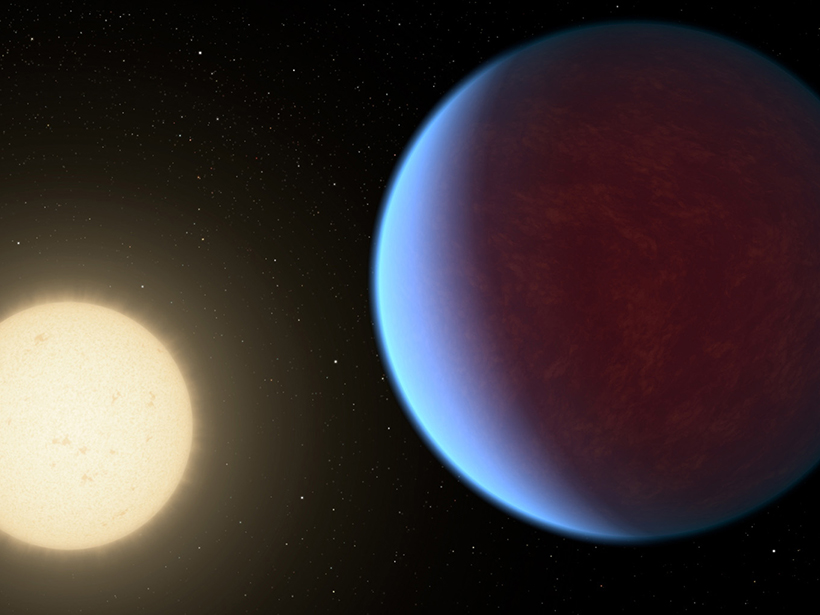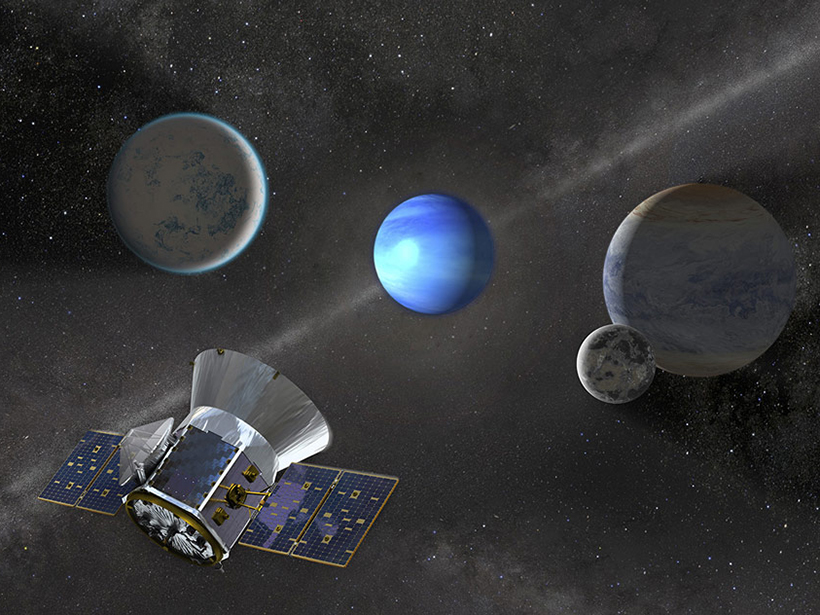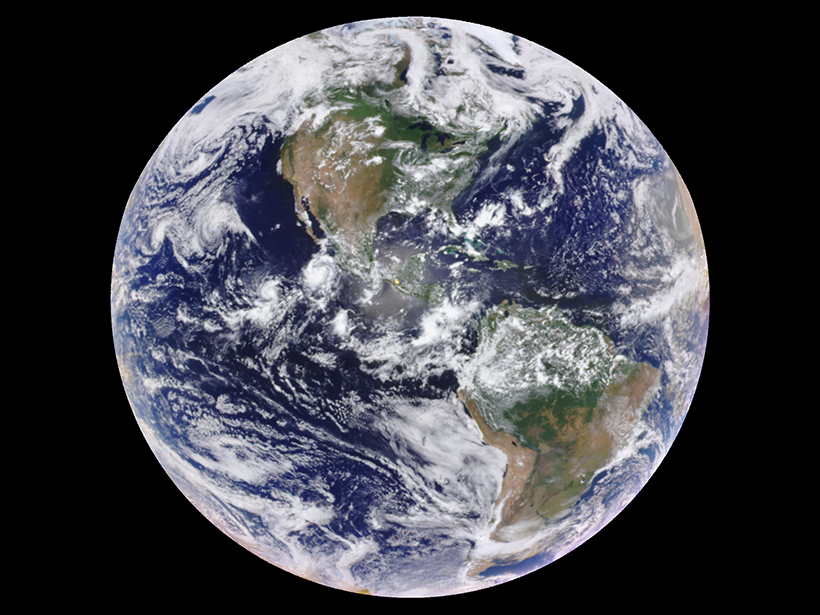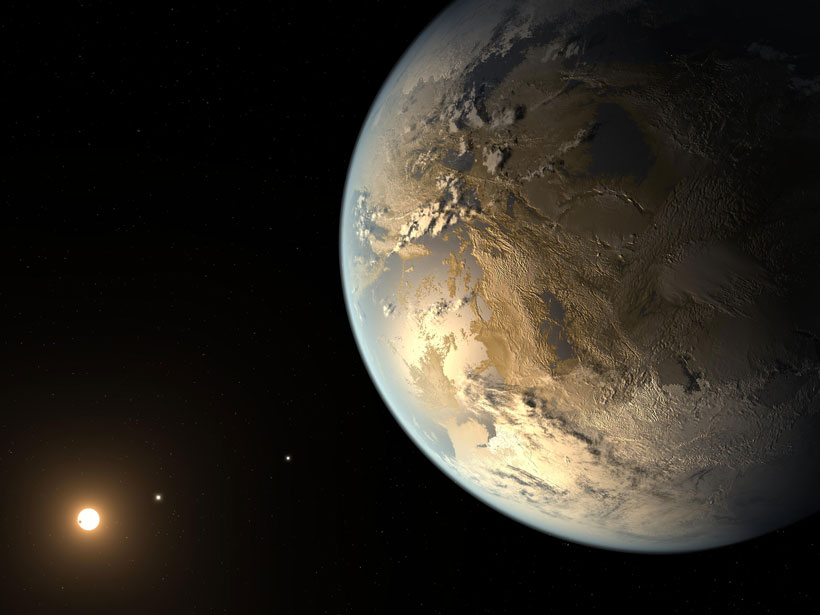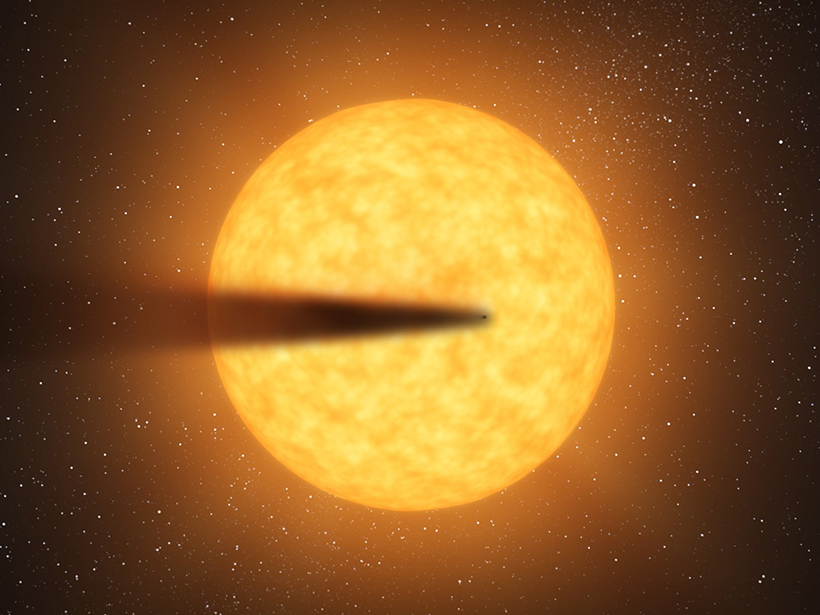Once thought to be part of the same population, planets larger than Jupiter and “failed stars” likely grow via different mechanisms, the Gemini Planet Imager Exoplanet Survey has shown.
exoplanets
Chemical Patterns May Predict Stars That Host Giant Planets
Stars with giant planets tend to have a few key elements in abundance. A new algorithm used these patterns to predict hundreds of stars that will likely have exoplanets if we go looking for them.
Modeling the Climates of Worlds Beyond Earth
Scientists are applying climate models to distant planets to determine their habitability.
NASA Space Telescope Spots Its Third Planet
A planet 3 times as large as the Earth was detected by the Transiting Exoplanet Survey Satellite in a relatively leisurely orbit—the longest yet detected by this telescope—of 36 days.
One-Pixel Views of Earth Reveal Seasonal Changes
By averaging satellite images of the Earth down to a single pixel, researchers trace how the planet’s mean color varies over time, results that inform observations of distant exoplanets.
Exoplanet Strategy Promotes Big Missions, Individual Science
Collaborative and interdisciplinary research will be key to realizing the missions’ full potential, according to the exoplanet strategy report.
Large Exomoon Likely Orbits a Faraway World
This Neptune-sized object would be the first moon discovered to orbit a planet outside the solar system, provided that additional observations continue to support the claim.
New Exoplanet Telescope Detects Its First Two Planets
The two possible planets, each larger than Earth and too hot to be habitable, are the first of hundreds of Earth-sized exoplanets expected to be discovered by a recently launched telescope.
How Well Can the Webb Telescope Detect Signs of Exoplanet Life?
Recent research suggests that NASA’s next-generation space telescope will be good—but not the best—at finding life-sustaining levels of oxygen in an exoplanet’s atmosphere.
Webb Telescope May Detect Minerals from Shredded Worlds
The upcoming James Webb Space Telescope should be able to measure the composition of vaporizing exoplanets, giving clues about the makeup of their cores, mantles, and crusts.



